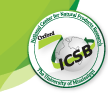Document Type
Oral Presentation
Location
Oxford Convention Center, 102 Ed Perry Boulevard Oxford, MS 38655
Event Website
https://oxfordicsb.org/
Start Date
18-4-2024 11:30 AM
End Date
18-4-2024 11:45 AM
Description
There has been remarkable growth in consumption of botanical dietary supplements (BDS), making it important to understand the safety profile of BDS with respect to the pharmacokinetic properties for any potential of botanical-drug interactions. One such botanical interactions which has gained significant attention involves inhibition of cytochrome P450 (CYP450) enzymes by co-administered drugs. Our study involved examining two widely used botanicals, ashwagandha and açaí for any potential inhibition of CYP450. Four different ashwagandha extracts were tested, resulting in inhibition of CYP2B6 with IC50 < 100 µg/ml of extract and showed potential of time-dependent inhibition for CYP2C9 and CYP2D6 with an IC50 ~ 200 µg/ml of extract. In the case of açaí, seven different extracts were tested and only CYP2C9 was inhibited. The acidic methanol extract of açaí formulation showed an IC50 of 0.3 µg/ml of extract indicating potent inhibition of CYP2C9, while the methanol (IC50 ~ 91.75 µg/ml) & ethanol extracts of Mountain Rose açaí powder showed weak inhibitory effect with an IC50 < 100 µg/ml of extract for CYP2C9. The results reflect that both botanical extracts showed potential of CYP450 inhibition, suggesting that compounds in BDS can prolong the half-lives of medications leading to extended action or toxicity. Next step involves, testing subfractions of these extracts to identify the compounds responsible for the observed inhibition.
Recommended Citation
Calderón, Angela I.; Raichura, Zarna; Heck, Kabre; Choi, Jaewoo; Brandes, Mikah; Neff, Cody; Maier, Claudia; Soumyanath, Amala; and Arnold, Robert, "Evaluation of botanical extracts for cytochrome P450 inhibition mediated drug interactions" (2024). Oxford ICSB. 27.
https://egrove.olemiss.edu/icsb/2024_ICSB/Schedule/27
Publication Date
April 2024
Accessibility Status
Searchable text
Included in
Evaluation of botanical extracts for cytochrome P450 inhibition mediated drug interactions
Oxford Convention Center, 102 Ed Perry Boulevard Oxford, MS 38655
There has been remarkable growth in consumption of botanical dietary supplements (BDS), making it important to understand the safety profile of BDS with respect to the pharmacokinetic properties for any potential of botanical-drug interactions. One such botanical interactions which has gained significant attention involves inhibition of cytochrome P450 (CYP450) enzymes by co-administered drugs. Our study involved examining two widely used botanicals, ashwagandha and açaí for any potential inhibition of CYP450. Four different ashwagandha extracts were tested, resulting in inhibition of CYP2B6 with IC50 < 100 µg/ml of extract and showed potential of time-dependent inhibition for CYP2C9 and CYP2D6 with an IC50 ~ 200 µg/ml of extract. In the case of açaí, seven different extracts were tested and only CYP2C9 was inhibited. The acidic methanol extract of açaí formulation showed an IC50 of 0.3 µg/ml of extract indicating potent inhibition of CYP2C9, while the methanol (IC50 ~ 91.75 µg/ml) & ethanol extracts of Mountain Rose açaí powder showed weak inhibitory effect with an IC50 < 100 µg/ml of extract for CYP2C9. The results reflect that both botanical extracts showed potential of CYP450 inhibition, suggesting that compounds in BDS can prolong the half-lives of medications leading to extended action or toxicity. Next step involves, testing subfractions of these extracts to identify the compounds responsible for the observed inhibition.
https://egrove.olemiss.edu/icsb/2024_ICSB/Schedule/27



Comments
Research reported in this abstract was supported by R15AT011047 from National Center for Complementary and Integrative Health (NCCIH) and the Office of Dietary Supplements (ODS). Its contents are solely the responsibility of the authors and do not necessarily represent the official views of the NCCIH, ODS, or the National Institutes of Health.